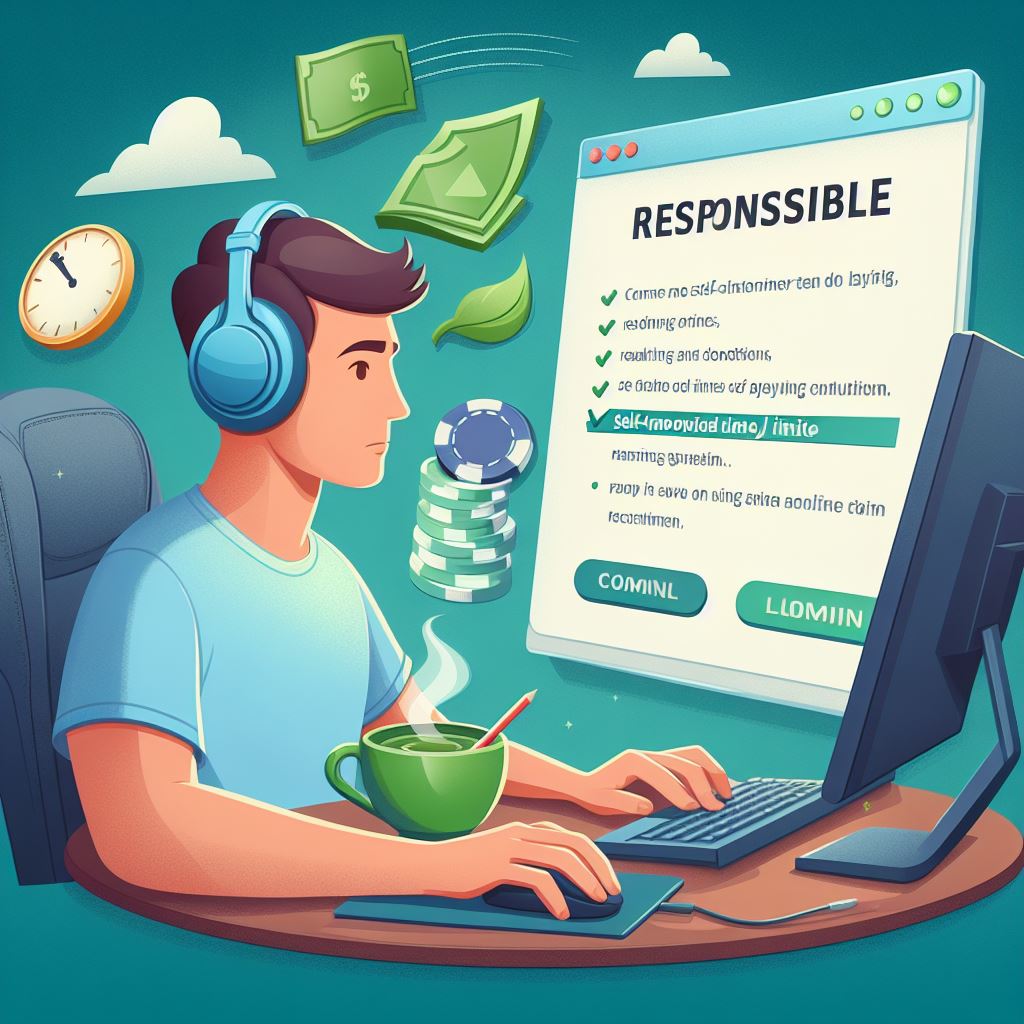Responsible Gaming for Online Casino Players
Responsible gaming boils down to one key principle: enjoying the thrill of online gambling while being mindful of the potential risks involved. It’s about finding that sweet spot where you can have a blast without letting things get out of hand. When you play responsibly, you’re safeguarding your finances, your relationships, and your overall well-being.
Set Limits Before You Play
Setting limits before engaging in online gambling is a fundamental practice that can greatly influence your overall gaming experience. It’s about establishing clear boundaries for yourself, both in terms of time and money.
Setting financial limits is perhaps the most straightforward aspect. Consider how much disposable income you have available for entertainment purposes, and designate a portion of it for online gambling. This could be a weekly or monthly budget, depending on your preferences and financial situation. Determining this amount upfront helps you not risk more than you can afford to lose.
If you don’t wish to dedicate your whole evening to a brick-and-mortar casino, important to establish limits for your online gaming sessions. Decide how much time you’re willing to devote to gambling each day or week, and stick to it. This assists in preserving a healthy equilibrium between gaming and other facets of your life.
Setting limits is only half the battle. The real challenge lies in adhering to them once the excitement of the game kicks in. It’s all too easy to get swept up in the adrenaline rush of a winning streak or the allure of chasing losses. But by staying true to the limits you’ve set for yourself, you can avoid falling into the trap of reckless behavior and keep your gaming experience enjoyable and responsible.
Budget Wisely
Figure out the amount of discretionary income you can allocate for gambling. This refers to funds that won’t affect your necessary expenses like rent, groceries, or bills if lost. Be honest with your financial status and designate a part of your entertainment budget for online gambling.
Once you’ve established your gambling budget, the next step is to decide how you’ll allocate it across your gaming sessions. Will you spread it out evenly over the month, or will you set aside a specific amount for each session? This decision will depend on your personal preferences and gaming habits.
Consider factors like the stakes you play at, the types of games you prefer, and the frequency of your gaming sessions. Are you a high roller who enjoys the thrill of high-stakes games, or do you prefer to stick to lower-risk options? Understanding your gaming preferences can help you make informed decisions about how to allocate your gambling budget effectively.
Take Regular Breaks
One of the biggest dangers of online gambling is the tendency to become so engrossed in the games that you lose track of time. Hours can slip away in the blink of an eye as you chase that elusive jackpot or try to recoup your losses.
Set a timer or schedule reminders to prompt you to take breaks at regular intervals. Stepping away from the screen allows you to recharge and refocus. Use this time to stretch your legs, grab a snack, or engage in a non-gaming activity to give your brain a break from the constant stimulation of online gambling.
Online gambling can be intense and emotionally draining, especially during losing streaks or high-stakes games. Taking regular breaks allows you to step back, take a deep breath, and regain perspective, preventing burnout and reducing the risk of impulsive or irrational decision-making.
The key to taking effective breaks is sticking to them. It’s easy to ignore those reminders and keep playing, especially when you’re on a winning streak or caught up in the excitement of the game. But by prioritizing your well-being and making a conscious effort to take regular breaks, you can ensure that your online gambling experience remains enjoyable, sustainable, and responsible.
Avoid Chasing Losses

Chasing losses is a common trap that many players fall into, but it’s a behavior that can lead to significant financial and emotional consequences if left unchecked. The reality is that gambling outcomes are entirely random and independent of one another. Just because you’ve experienced a string of losses doesn’t mean that a win is guaranteed to come your way soon. The more you chase losses, the more likely you are to dig yourself into an even deeper hole.
Chasing losses can quickly spiral out of control, leading to reckless behavior and irrational decision-making. You might find yourself increasing your bets in a desperate attempt to recoup your losses, only to end up losing even more money in the process. Before you know it, you’re caught in a cycle of chasing losses that’s difficult to break free from.
How can you avoid falling into the trap of chasing losses? Recognize when you’re engaging in this behavior and take steps to stop it in its tracks. Set strict limits for yourself in terms of how much money and time you’re willing to spend on gambling, and stick to them no matter what. If you find yourself tempted to chase losses, take a step back, and remind yourself that gambling should be fun and entertaining, not a way to make money.
Instead of focusing on recouping your losses, shift your mindset to one of responsible gaming. Accept that losses are a natural part of gambling and that they’re not something to be ashamed of or afraid of. By maintaining a positive and balanced approach to online gambling, you can enjoy the experience without falling victim to the pitfalls of chasing losses.
Use Self-Exclusion Tools
The primary goal of self-exclusion is to create a temporary barrier between you and online gambling, giving you the opportunity to step back, reassess your habits, and seek support if needed. It is a tool for breaking the cycle of compulsive gambling behavior and preventing further financial and emotional harm.
Self-exclusion tools are easy to access and utilize, typically available directly within the settings or account management section of the online casino platform. Once initiated, the self-exclusion process takes effect immediately, preventing you from logging in to your account and participating in any gambling activities.
If you’re considering utilizing self-exclusion tools, take the process seriously and commit to following through with it. This means refraining from attempting to circumvent the self-exclusion measures or creating new accounts on the same platform. Remember, the purpose of self-exclusion is to create a safe and supportive environment for you to regain control of your gambling habits, and attempting to bypass these measures undermines that goal.
Many online casinos also offer resources and support services for players dealing with gambling addiction or compulsive behavior. These may include links to counseling services, helplines, and support groups where you can connect with others facing similar challenges and receive guidance and encouragement on your journey to recovery.
Seek Support if Needed
One of the first steps in seeking support is reaching out to trusted friends or family members and discussing your concerns with them openly and honestly. They can offer you a listening ear, provide emotional support, and help you explore your options for getting help.
There are also numerous professional resources and support services available for individuals struggling with gambling addiction or compulsive behavior.
Many therapists and counselors specialize in treating gambling addiction and can provide you with the tools and strategies you need to overcome your challenges.
There are numerous helplines available where you can speak with trained professionals who can offer confidential support and guidance.
Joining a support group for individuals dealing with gambling addiction can provide you with a sense of community and camaraderie as you work toward recovery. These groups offer a safe space to share your experiences, receive encouragement, and learn from others facing similar challenges.
If you’re unsure where to start or feel overwhelmed by the prospect of seeking support, don’t hesitate to reach out to your healthcare provider or a trusted authority figure for guidance and assistance.

